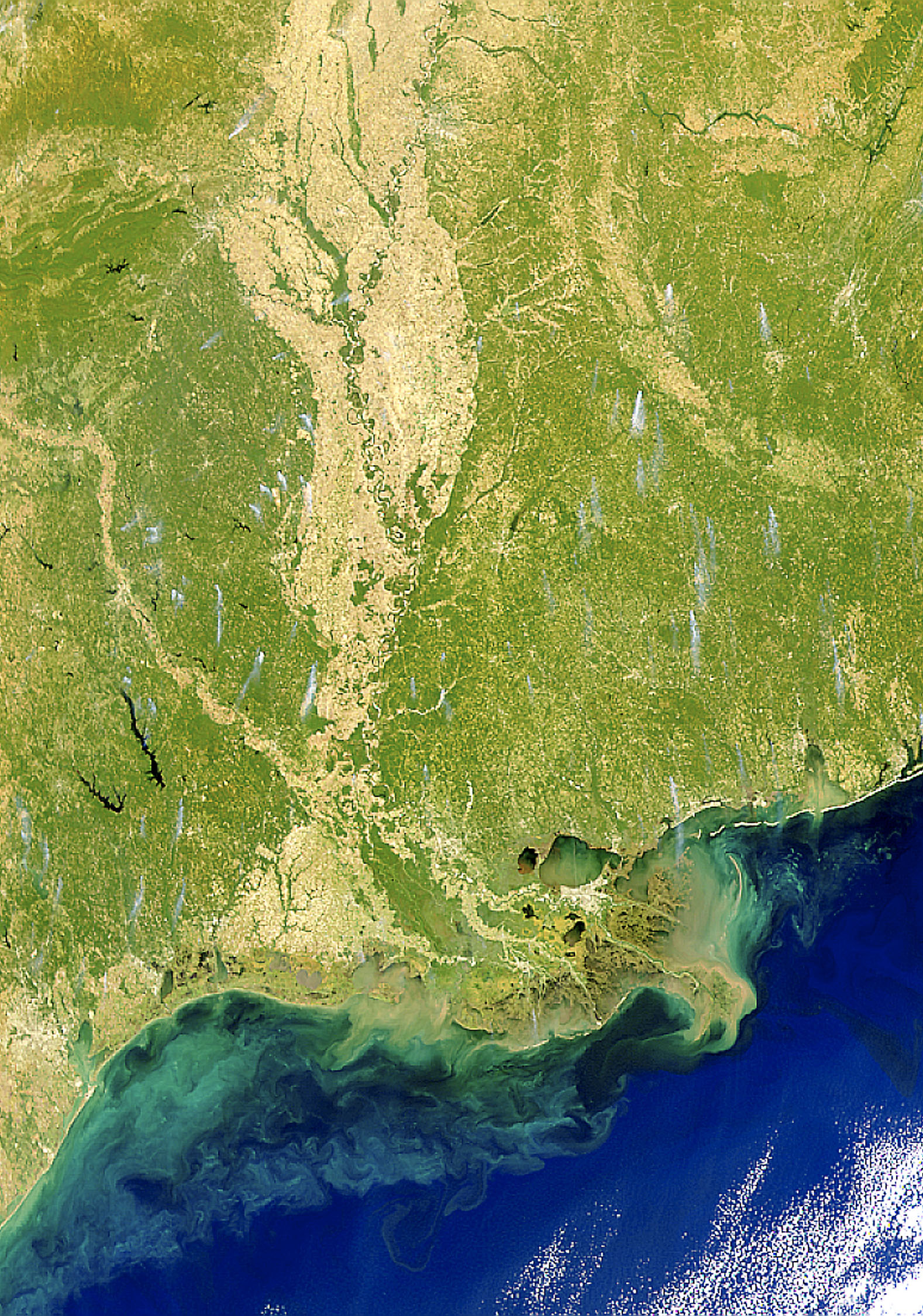Explore LSU’s Coastal Expertise and Services
Expertise
Infrastructure and Community Resilience
Through collaboration with communities, LSU experts and Louisiana Sea Grant provide adaptive solutions, such as helping the Pointe-au-Chien Indian Tribe in Terrebonne and Lafourche parishes reduce impacts from tropical storms by using nature-based solutions—including marsh creation, barrier island restoration, and living shoreline protection—that also honor their cultural heritage and priorities; or working with Tangipahoa Parish to reduce flooding.
Coastal Ecosystems and Engineering Design
LSU works to understand and harness the short and long-term natural processes that shape coastal ecosystems into nature-based designs for safer communities. We transform these solutions and hard infrastructure engineering into performance metrics that provide multiple lines of defense for our working coast.
Mississippi River and Gulf of Mexico Modeling
LSU translates the physical, chemical, and biological processes in the Mississippi River Delta and Gulf of Mexico into simulation and forecast models that enhance the design, operation, and maintenance of coastal restoration projects, waterways, navigation, ports, and energy infrastructure.
Louisiana’s Water Economy
LSU and Sea Grant support the water economy by promoting sustainable food and energy production (from fisheries to petrochemical manufacturing) as well as tourism and collaborative stewardship of the state’s coastal resources through a combination of research, education, and outreach. We put science to work for coastal communities and global industries.

Services
Field and Laboratory Studies
LSU leverages decades of research excellence and cutting-edge technology to collect critical data from inland waterways, rivers, coastal zones, and the continental shelf. By capturing perishable data before and after extreme events like hurricanes and oil spills, we enable informed, timely responses and long-term recovery strategies. Our state-of-the-art labs and research facilities enable precise testing of physical, chemical, and biological samples to address complex coastal challenges.
Remote Sensing and Technological Innovation
Using UAVs, satellites, robotics, and computer vision, LSU develops detailed models that uncover insights into coastal ecosystems, infrastructure performance, and community resilience. These tools accelerate our ability to monitor and adapt to environmental changes at scale.
Data Science, Modeling, and Design
Through AI-driven and physics-based modeling, LSU advances coastal engineering, hazard assessment, and climate adaptation. Supported by the LSU Center for Computation & Technology, our expertise in data mining, processing, and visualization equips industry and stakeholders with innovative and sustainable solutions.
Surveys and Insights to Inform Policy
LSU engages directly with coastal residents and stakeholders to collect data on attitudes, behaviors, and perceptions regarding coastal challenges. These insights shape policy decisions and foster adaptive strategies to address and drive change.
LSU-supported Centers & Institutes
For questions about LSU's centers and institutes committed to coastal research, contact John Flake, Associate Vice President for Science and Engineering of Natural and Built Environments, in the LSU Office of Research and Economic Development.
- LSU Center for Computation & Technology
- LSU Center for GeoInformatics
- LSU Center for River Studies on the Baton Rouge Water Campus
- LSU Coastal Ecosystem Design Studio on the Baton Rouge Water Campus
- LSU Coastal Studies Institute
LSU colleges at SOTC2025
- LSU College of the Coast & Environment (Clint Willson, Dean)
- LSU College of Engineering (Vicki Colvin, Dean)
- LSU College of Science (Cynthia Peterson, Dean)


